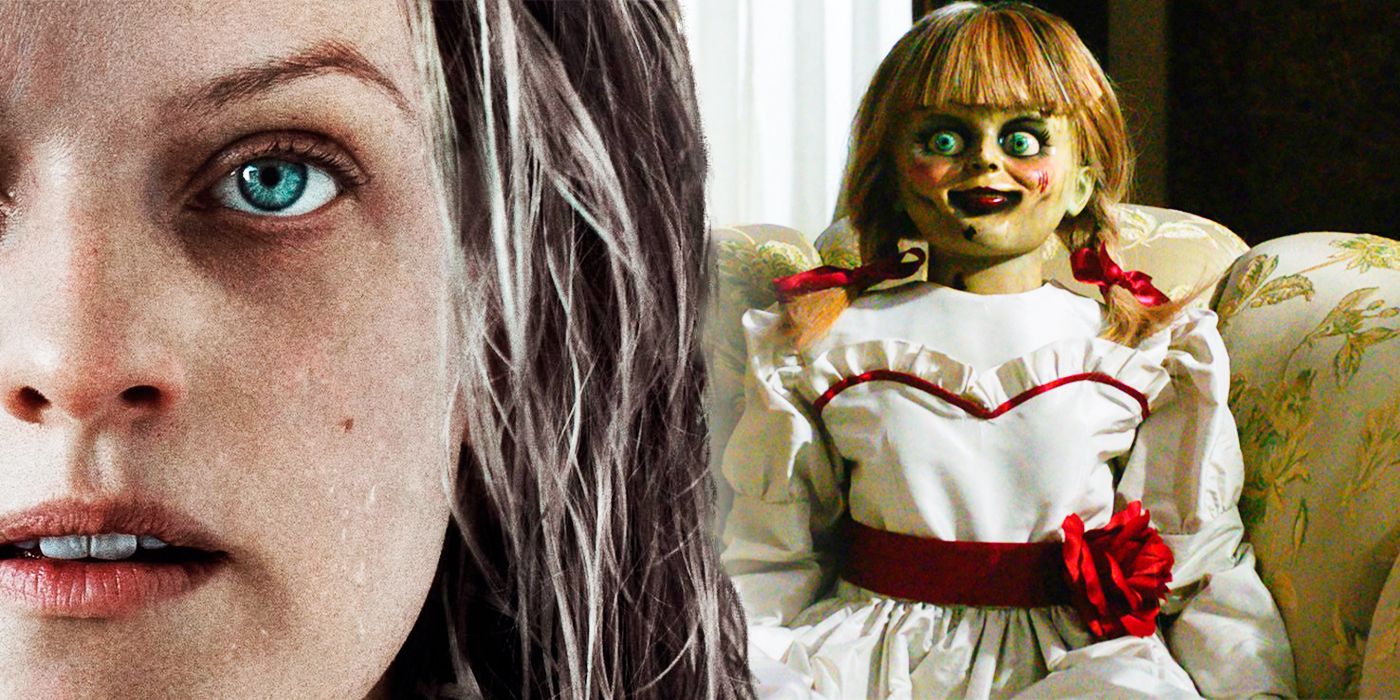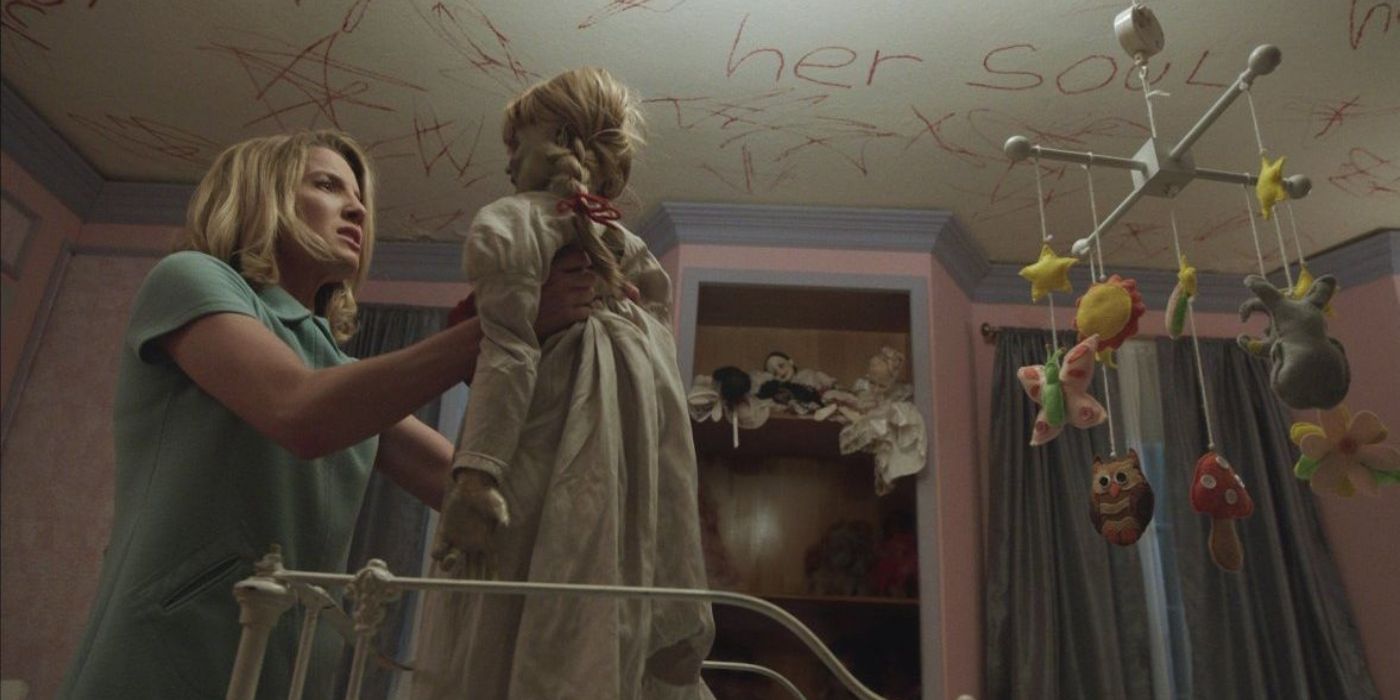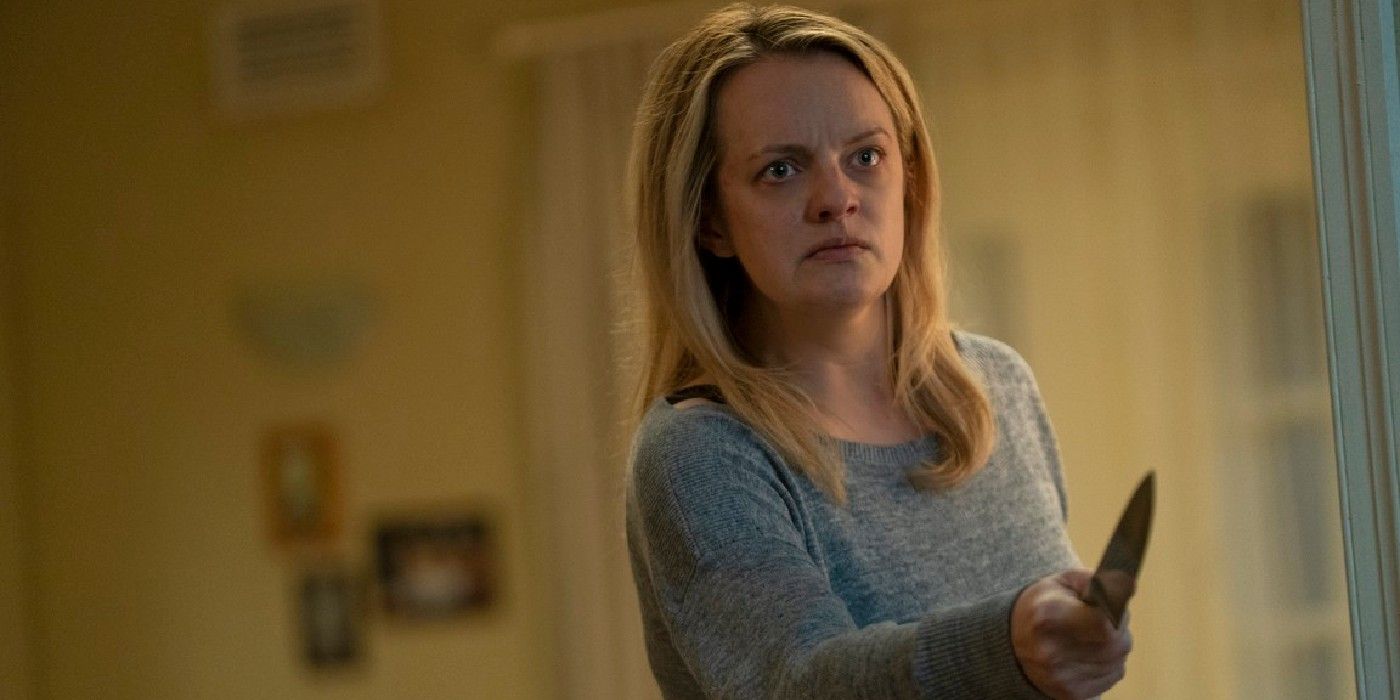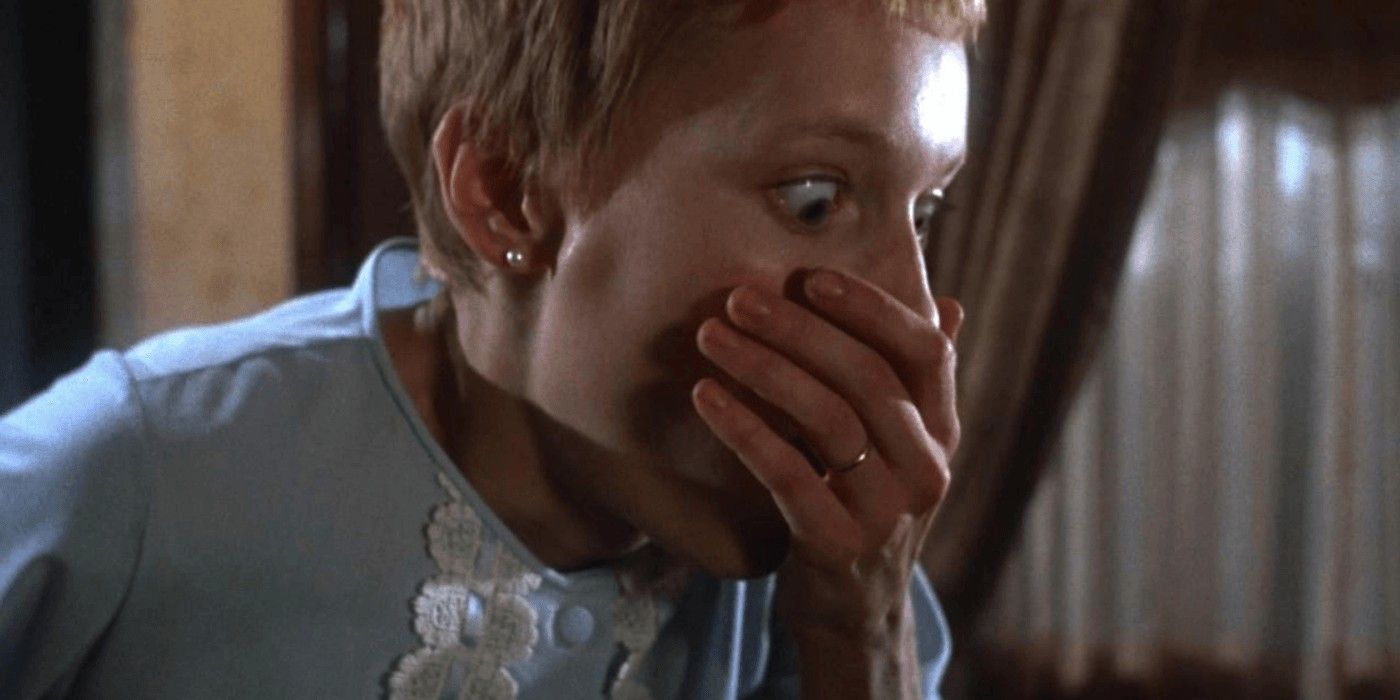Horror films are known for gore, suspense, supernatural scares and just making their audiences downright uncomfortable. However, the genre also has a penchant for the "Crazy Woman" trope. While horror isn't the only brand to utilize this cliché, it's frequently guilty of it, especially in the haunted house subgenre. It might be tempting to shrug off the Crazy Woman trope as a thing of the past, but it's still occurring in newer releases like 2014's Annabelle and 2020's The Invisible Man remake. As such, it perpetuates the idea that women are less rational and emotionally stable than their male counterparts -- a characterization that does more harm than good.
In horror, the Crazy Woman trope usually plays out the same way. A woman experiences a supernatural occurrence alone. She's then confronted with two options. One, she hides it from the male presence -- usually a husband or romantic partner -- for fear he'll think she's "crazy." Two, she confides in the male, only for him to confirm that she must be crazy. In the latter scenario, the man typically remains in supernatural denial until the film's conclusion when he experiences it firsthand -- and it's usually too late.
For some reason, the female protagonists aren't readily believed. It's a frustrating phenomenon for audiences, who often experience these movies through the woman's POV. As a result, viewers also witness the supernatural oddities and feel the need to shout, "Why does nobody believe her?" In some cases, the man's blatant disregard even creates resentment for his character. This is exemplified in The Conjuring Universe's Annabelle, which features a wife, Mia, being tormented by a demon in the infamous Annabelle doll. When confiding in her husband, he brushes her ghost story off as stress. After all, she's the mother of a newborn. It takes significant convincing and John's own experience before he takes her side.
2020's The Invisible Man remake spotlights the Crazy Woman trope at its most obvious. When Elisabeth Moss' Cecelia Kass flees an abusive boyfriend, he hunts her down in an invisibility suit. While Cecelia is privy to her boyfriend's nefarious plan right from the start, her friends, family and law enforcement are slow on the uptake. Because they don't believe her, she's drugged, injured and committed to a psychiatric ward.
Going back to 1988's Child's Play, Karen Barclay also received the Crazy Woma treatment. If Detective Norris had believed her, Chucky might've had fewer kills under his belt. Even 1986's Aliens, which features a largely powerful female protagonist, is guilty of utilizing the trope early in the film. It's a shame the male executives don't believe Sigourney Weaver's Ellen Ripley when she warns them about the extraterrestrial eggs she spotted.
While a cult classic, 1981's The Evil Dead, opens with more of the same. Cheryl begins to experience demonic activity first and hides it from the group. Later, she's raped by a possessed tree in the film's infamous scene -- and her friends don't believe her. Although one could argue this could be a commentary on rape culture, it's troublesome. It takes the Crazy Woman trope -- seen in countless other films like The Omen, The Ring and The Entity -- to another level.
On the other hand, 1968's Rosemary's Baby uses the trope to provide potent societal commentary. The titular mother-to-be thinks her husband is involved with a Satanic cult eager to get their hands on her baby. Although she's right, no one believes her, even her own doctor, who actually calls her crazy and rats her out to her husband. It's a troubling scenario that uses the Crazy Woman trope to great effect by spotlighting sexist issues, particularly the idea of women no being heard by their male peers.
Sure, most people are probably quick to shut down anyone who's raving about ghosts and demons without evidence. However, making the majority of these naysayers male promotes the idea that healthy skepticism is only reserved for men, and women are prone to maniacal fantasy. Not to mention it often leads to more outdated, problematic thoughts, such as curing the "hysterical woman" with a good slap in the face, and menstruation is equivalent to instability.
It's not to say these types of stories don't have a place in horror, as exemplified by Rosemary's Baby, but the Crazy Woman gets old fast. Overused and underwhelming, it's more likely to elicit eye rolls than applause in this day and age. With recent genre films like The Conjuring: The Devil Made Me Do It and A Quiet Place Part II emphasizing the importance of family, it seems horror may be going in a new direction.
Some great movies have indeed stemmed from the Crazy Woman trope. However, like anything, horror is an evolving medium that often reflects modern-day fears/issues. As such, it's time the genre considers leaving the outdated trope in the past where it belongs.




